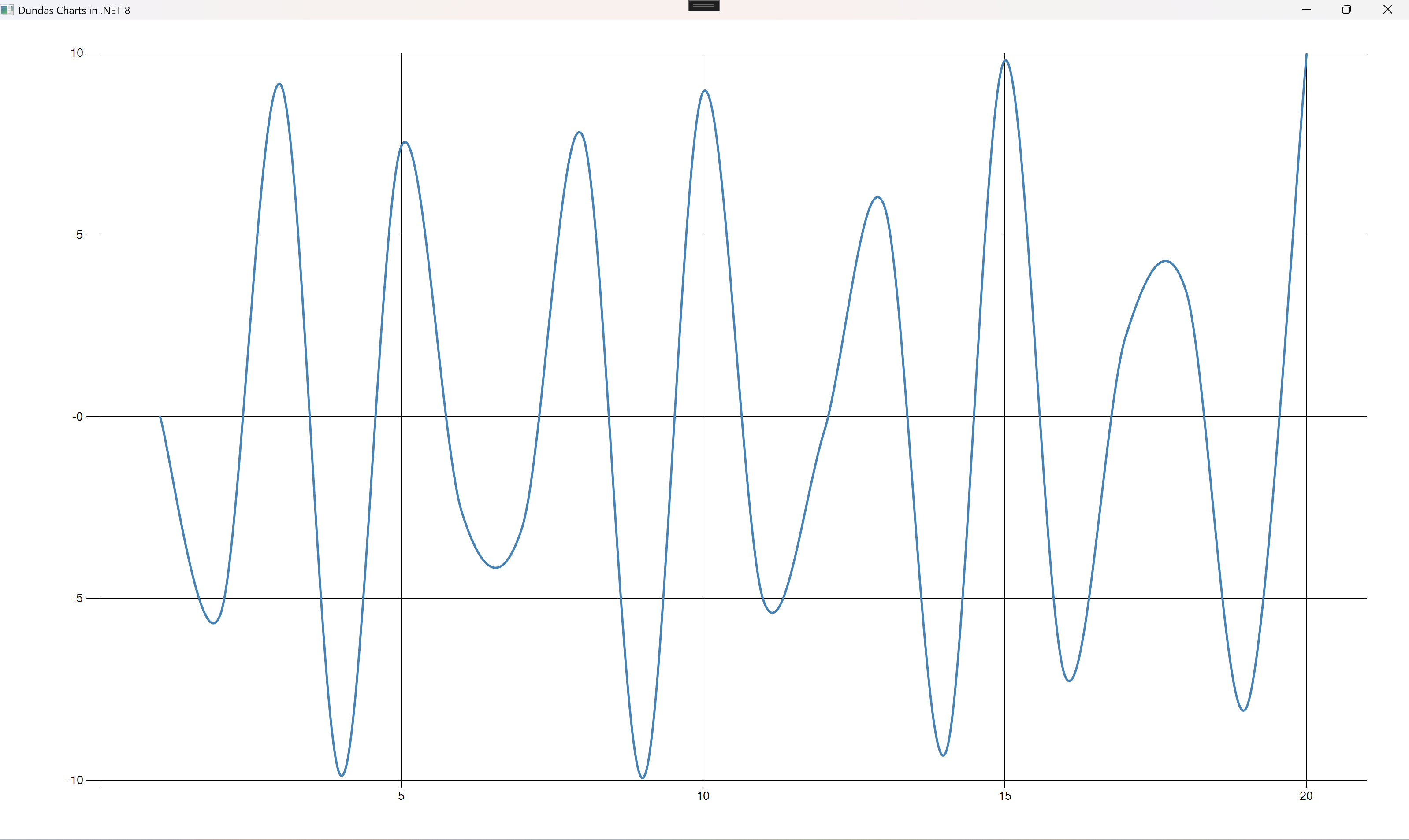WPF .net8 use Dundas chart of System.Windows.Forms
install-package Microsoft.Windows.Compatibility install-package System.Windows.Forms -version 4.0.0.0 install-package System.Data.SqlClient --version 4.9.0 install-package System.Windows.Forms.DataVisualization -version 1.0.0-prerelease.19212.2

The type or namespace name 'Integration' does not exist in the namespace 'System.Windows.Forms' (are you missing an assembly reference?) Assembly 'WindowsFormsIntegration' was not found. Verify that you are not missing an assembly reference. Also, verify that your project and all referenced assemblies have been built.
The solution is to add <UseWindowsForms>true</UseWindowsForms> in csproj file as below
<Project Sdk="Microsoft.NET.Sdk"> <PropertyGroup> <OutputType>WinExe</OutputType> <TargetFramework>net8.0-windows</TargetFramework> <UseWindowsForms>true</UseWindowsForms> <Nullable>enable</Nullable> <ImplicitUsings>enable</ImplicitUsings> <UseWPF>true</UseWPF> </PropertyGroup> <ItemGroup> <PackageReference Include="Microsoft.Windows.Compatibility" Version="9.0.6" /> <PackageReference Include="System.Data.SqlClient" Version="4.9.0" /> <PackageReference Include="System.Windows.Forms" Version="4.0.0" /> <PackageReference Include="System.Windows.Forms.DataVisualization" Version="1.0.0-prerelease.19212.2" /> </ItemGroup> </Project>
Save the above csproj file and rebuild it will resolve errors.
App.xaml.cs(10,32,10,43): error CS0104: 'Application' is an ambiguous reference between 'System.Windows.Forms.Application' and 'System.Windows.Application'
And full namespace System.Windows.Application
public partial class App : System.Windows.Application { }

//All code //xaml <Window x:Class="WpfApp50.MainWindow" xmlns="http://schemas.microsoft.com/winfx/2006/xaml/presentation" xmlns:x="http://schemas.microsoft.com/winfx/2006/xaml" xmlns:d="http://schemas.microsoft.com/expression/blend/2008" xmlns:mc="http://schemas.openxmlformats.org/markup-compatibility/2006" xmlns:local="clr-namespace:WpfApp50" mc:Ignorable="d" xmlns:winforms="clr-namespace:System.Windows.Forms;assembly=System.Windows.Forms" xmlns:wfi="clr-namespace:System.Windows.Forms.Integration;assembly=WindowsFormsIntegration" Title="Dundas Charts in .NET 8" WindowState="Maximized"> <Grid> <wfi:WindowsFormsHost Name="windowsFormsHost"> <!-- Chart will be added programmatically --> </wfi:WindowsFormsHost> </Grid> </Window> //cs using System.Text; using System.Windows; using System.Windows.Controls; using System.Windows.Data; using System.Windows.Documents; using System.Windows.Forms.DataVisualization.Charting; using System.Windows.Forms.Integration; using System.Windows.Input; using System.Windows.Media; using System.Windows.Media.Imaging; using System.Windows.Navigation; using System.Windows.Shapes; namespace WpfApp50 { /// <summary> /// Interaction logic for MainWindow.xaml /// </summary> public partial class MainWindow : Window { private Chart dundasChart; public MainWindow() { InitializeComponent(); InitializeDundasChart(); } private void InitializeDundasChart() { Random rnd = new Random(); // Create the WinForms Chart control dundasChart = new Chart { Dock = System.Windows.Forms.DockStyle.Fill }; // Add a chart area var chartArea = new ChartArea(); dundasChart.ChartAreas.Add(chartArea); // Create and configure series var series = new Series { Name = "DataSeries", ChartType = SeriesChartType.Column, Color = System.Drawing.Color.SteelBlue, //MarkerStyle = MarkerStyle.Circle, BorderWidth = 5 }; series.ChartType = SeriesChartType.Spline; // Add sample data for (int i = 0; i < 20; i++) { series.Points.AddXY((i + 1).ToString(), 10 * Math.Sin(i * 10)); } dundasChart.Series.Add(series); // Add chart to WindowsFormsHost windowsFormsHost.Child = dundasChart; } } }




 浙公网安备 33010602011771号
浙公网安备 33010602011771号